-
Investing in Girls and Women Could Set Stage for Peace, Development in Sahel
›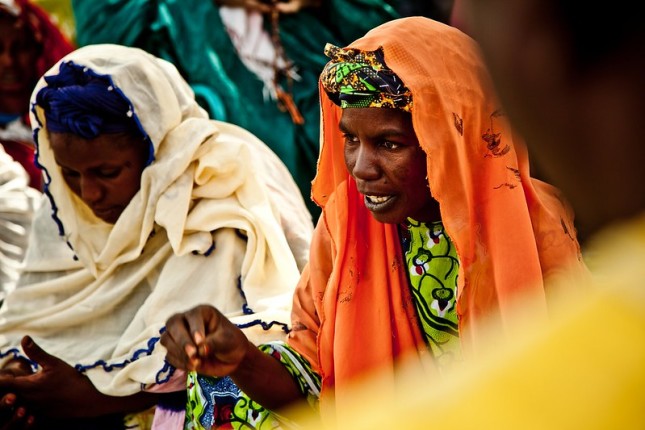
The coronavirus pandemic has people throughout the world pondering how humankind should respond to a public health crisis. While individual countries are managing the crisis with varying degrees of success, we can all agree that the Covid-19 pandemic is commanding the international community’s attention. By contrast, it is much harder to get the world to care about the long-term public health crisis unfolding in the West African Sahel.
-
Chitra Nagarajan on What’s Changed for Women in Lake Chad Region
› “Women and men face very different risks and challenges,” said Chitra Nagarajan, a writer and journalist who covers climate change, conflict, and gender. She spoke in this week’s podcast about what’s changed in the Lake Chad region. In the last few years the combination of profound climate change and high levels of insecurity have made life harder for the local population. To get a sense of how recent changes have affected Lake Chad’s residents, Nagarajan interviewed more than 250 people. These are some of her findings.
“Women and men face very different risks and challenges,” said Chitra Nagarajan, a writer and journalist who covers climate change, conflict, and gender. She spoke in this week’s podcast about what’s changed in the Lake Chad region. In the last few years the combination of profound climate change and high levels of insecurity have made life harder for the local population. To get a sense of how recent changes have affected Lake Chad’s residents, Nagarajan interviewed more than 250 people. These are some of her findings. -
Sexuality Education Begins to Take Root in Africa
›
In Kenya, primary and secondary school students take courses called Life Skills Education. So do students in Malawi, Mozambique, Namibia, and Swaziland. South Sudan adds “peace-building” to the subject title. Lesotho, Madagascar, Rwanda, Tanzania, Uganda, and Zambia are more direct. These countries add the word “sexuality” to the course name.
-
Investing in Women’s Empowerment Essential to Achieving Peace, Security in Africa
›Africa in Transition // From the Wilson Center // November 14, 2019 // By Brigitte Hugh & Deekshita Ramanarayanan
A country can achieve sustainable peace and security only if women are included, said Monde Muyangwa, Director of the Wilson Center’s Africa Program at a recent Wilson Center event on the role of women in promoting peace and security in Africa. “And I would argue that part of the challenges that we face on the African continent, the insecurity that we face in parts of the African continent,” she said, “is precisely because not all segments of society are included.”
-
A Generation in Limbo: Protracted Refugee Situations in Kenya Must Be Addressed
›August 15, 2019 // By John Thon Majok
The 1951 Refugee Convention spells out refugee rights, including the right to freedom of movement. Yet 68 years later, 15.9 million people are trapped in prolonged exile, living as refugees for anywhere from 5 to 47 years and counting. The unprecedented duration of protracted refugee situations (PRS) and the increasing scale of forced migration demand a comprehensive response beyond humanitarian assistance.
-
The Power of Serial Dramas: Popular Characters Help Change Attitudes and Behaviors
›
“We are all convinced that educational entertainment is the way to go now,” said Anselme Muzalia Wimye, Program Quality Director at Search for Common Ground in the Democratic Republic of the Congo (DRC). He spoke at a recent event hosted by the Wilson Center’s Environmental Change and Security Program, Maternal Health Initiative, and The Population Institute. The panel discussed the power of educational entertainment (EE), in particular serial dramas, to precipitate positive behavioral change and public health outcomes in Africa.
-
Climate Change May Weaken Children’s Education in the Tropics
›
In parts of the tropics, exposure to extreme temperature or rainfall in early life is associated with fewer years of schooling in later childhood. This finding comes from my new article in the Proceedings of the National Academy of Sciences, with coauthor Clark Gray. As climate change leads to increasingly severe heat waves, floods, droughts, and hurricanes, it is important to understand how extreme weather impacts kids’ education in different parts of the world. This will help decisionmakers develop solutions to keep children in school in a world of increasing climate variability.
-
Cultivating Meaningful Youth Engagement in Sexual and Reproductive Health Programming
› “We need to mainstream young people into the decision-making process,” said Senator Nikoli Edwards, age 25, of Trinidad and Tobago at a recent Wilson Center event on engaging youth to protect their sexual and reproductive health and rights. “Where it’s not a matter of, ‘let’s bring a young person into the room as an afterthought,’ but it should be written that a young person has to be a part of the discussion or has to be contributing in a significant way.”
“We need to mainstream young people into the decision-making process,” said Senator Nikoli Edwards, age 25, of Trinidad and Tobago at a recent Wilson Center event on engaging youth to protect their sexual and reproductive health and rights. “Where it’s not a matter of, ‘let’s bring a young person into the room as an afterthought,’ but it should be written that a young person has to be a part of the discussion or has to be contributing in a significant way.”
Showing posts from category education.


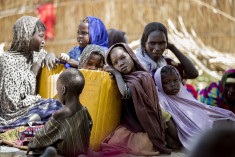 “Women and men face very different risks and challenges,” said
“Women and men face very different risks and challenges,” said 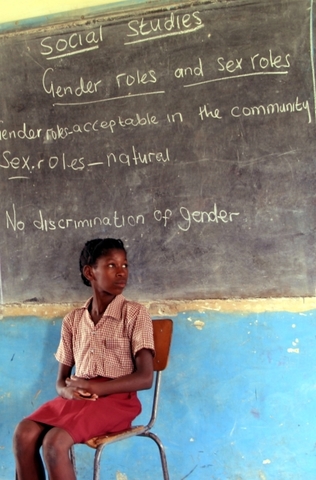
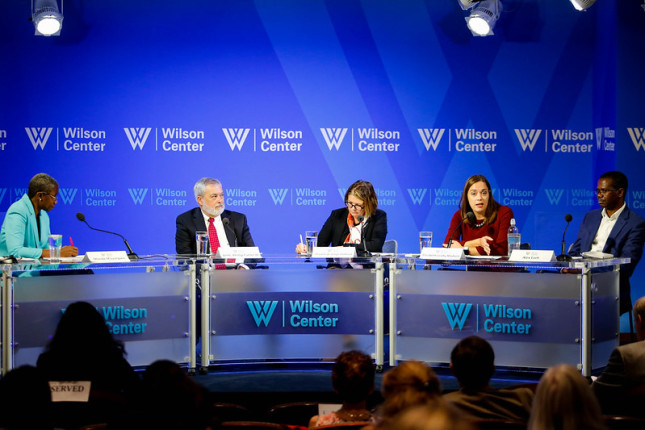
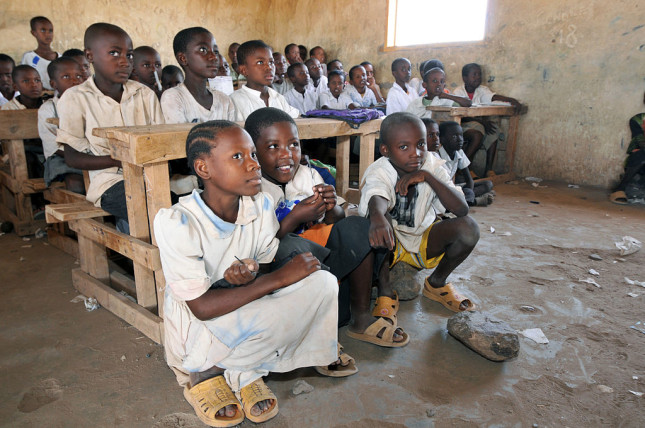
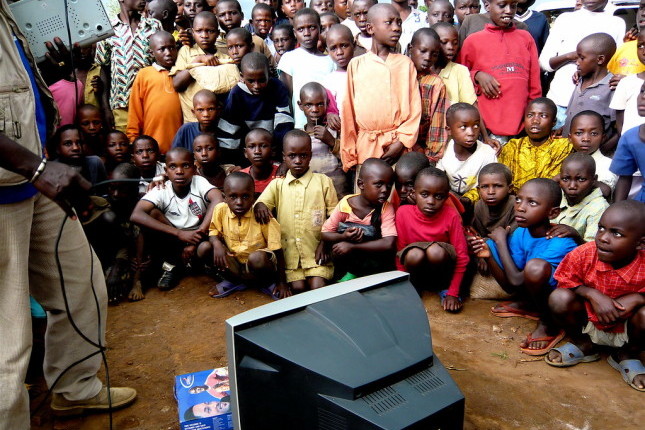
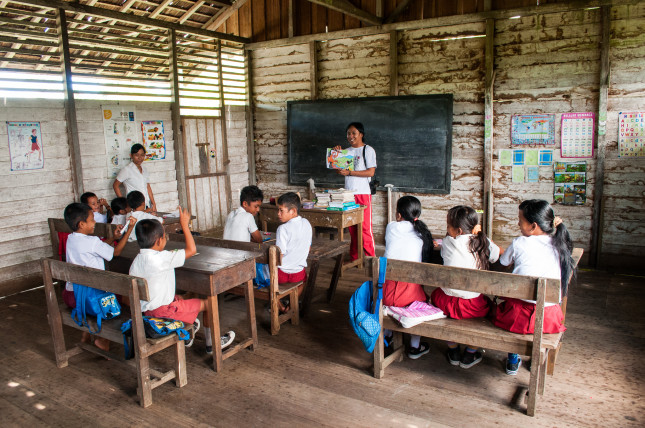
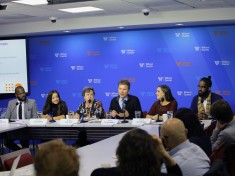 “We need to mainstream young people into the decision-making process,” said Senator Nikoli Edwards, age 25, of Trinidad and Tobago at a
“We need to mainstream young people into the decision-making process,” said Senator Nikoli Edwards, age 25, of Trinidad and Tobago at a 

